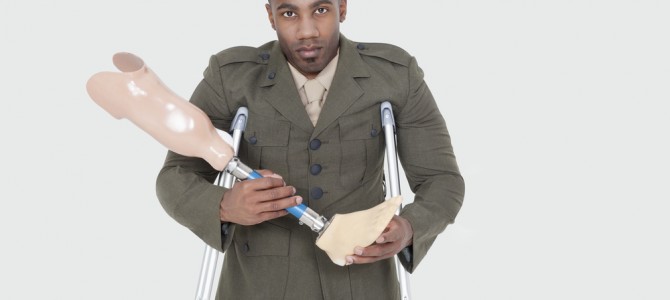
Last week in Vanity Fair, Bruce Jenner unveiled himself as Caitlyn. Not many hours after, the next new thing came along: “transableism” (I’m glad autocorrect doesn’t recognize that word at this point. Give it a few months). Transableism is defined as someone who desires to become physically disabled. They ostensibly believe they are “meant” to be that way, much in the way that someone like Jenner believes he was meant to be a woman.
I really haven’t concerned myself with trans issues overmuch. If Jenner wants to be called Caitlyn and referred to with feminine pronouns, I will do my best to remember that. As long as you’re using your own money (Chelsea Manning irritates me for this reason) and not browbeating anyone, I wish you well. My objections to this particular trans identity are threefold:
- As a “disabled” person
- As someone who has struggled with eating disorders and body dysmorphia
- As a political conservative/libertarian.
Deliberate Dismemberment Is Insane
First, the idea of voluntarily dismembering yourself because you feel like you were meant to be disabled is both insulting and incomprehensible. To understand where I’m coming from on this issue, a bit of my background might be useful. In 2010, at the age of 27, I lost my right leg in a car accident. My left arm was amputated two days later, due to complications. That’s the starting point for me, and my approach to this issue.
I cannot fathom wishing to be disabled, or worse, actively pursuing it. Personally, I don’t “identify” as disabled, and rarely, if ever, bring it up. Family, friends, and coworkers often apologize for forgetting that I have a hard time doing certain things, because I don’t need, ask, or want help.
People who want so badly to be disabled are obviously mentally ill. If the “transabled” were taking razors to their arms (oops, trigger warning), or if their ideations were about suicide rather than physical debilitation, there would be no question that they require immediate mental health care. The idea that we would view “transableism” as anything but a mental disorder is alarming, unsettling, and wrong.
Transabled People Need Therapy, Not Enabling
Second, I also suffered severely from anorexia and bulimia nervosa in my twenties. That went hand in hand with body dysmorphia. Even 30 pounds underweight, I still thought and believed I was fat. In fact, I will always think I am fat. Now, I just choose not to believe it. That’s something I had to work on. Hard. Both while in active treatment and on my own.
To say that someone who wants to cut off a limb is just “listening” to their body? Okay, but where does that stop? Should I and my family have said, “Okay, Andrea thinks she’s fat. So we’ll stand behind her illness?” NO! Hell, no!
Upon five years of recovering from those awful years, I can say with certainty that enabling me would’ve been the worst thing for me, not to mention for my family. Luckily, I have been able to recover from the ways I was harming myself. But if my preference had been physical debilitation? Not so much. I would’ve been altered forever because of choices made during a period of mental instability. The attempt to normalize the destructive behavior of those who need mental health care helps no one, and instead puts people at risk of not getting the proper treatment.
Transableism Makes Unfair Demands on Society
Third, you do not have a right to impose your illness on society. There is a basic concept familiar to anyone who goes through Political Science or Philosophy 101 known as the Harm Principle. The gist is that society shouldn’t stop you from doing what you please unless it harms others. While one could argue that the “transabled” aren’t harming anyone but themselves, the very act of deliberately imposing themselves on society is in fact the harm.
Being disabled is expensive and difficult to do on your own. Even when you can function independently, it still takes incredible amounts of time and paperwork to tell the federal and state governments to please go away. In my case, a rather frustratingly hilarious go-round with Social Security Disability ensued.
Either way, whether independent or in need of assistance, disabled persons have been granted a governmentally protected beneficiary status in modern society. If the “transabled” are allowed to indulge their mental illness to the point of gaining special status, and the benefits and money that can come with it, where does that lead?
Who can we say has a mental illness, and who must be accepted as trans-whatever? Who ought to be in treatment, and who should be accepted as a positive contributing member of society? We’re asking ourselves some insane questions, but it sure does make me feel more normal.







